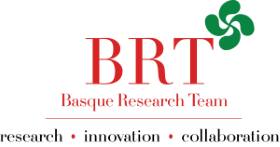by Borislava Manojlovic | Feb 24, 2015 | Research Team |
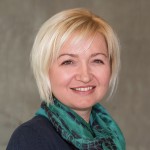 Borislava Manojlovic is the Director of Research Projects and an Adjunct Faculty at the School of Diplomacy and International Relations, Seton Hall University. She is leading the Basque research team at the School of Diplomacy. She also serves as the Secretary-Treasurer of the International Association of Genocide Scholars (IAGS) and she is a member of IAGS Executive Board. Before joining the School of Diplomacy and International Relations, she has been the Director of Research of the Genocide Prevention Program at the School for Conflict Analysis and Resolution, George Mason University. Prior to that, Borislava has been working with the United Nations and the Organization for Security and Cooperation in Europe in Croatia and Kosovo for more than seven years.
Borislava Manojlovic is the Director of Research Projects and an Adjunct Faculty at the School of Diplomacy and International Relations, Seton Hall University. She is leading the Basque research team at the School of Diplomacy. She also serves as the Secretary-Treasurer of the International Association of Genocide Scholars (IAGS) and she is a member of IAGS Executive Board. Before joining the School of Diplomacy and International Relations, she has been the Director of Research of the Genocide Prevention Program at the School for Conflict Analysis and Resolution, George Mason University. Prior to that, Borislava has been working with the United Nations and the Organization for Security and Cooperation in Europe in Croatia and Kosovo for more than seven years.
As the Director of Research, she has led and implemented numerous research projects that focus on dealing with the past, genocide prevention, forgiveness in governance, conflict management, peacemaking, education in post-conflict contexts, assessment and evaluation of peace programs and plans.
She also has extensive experience in teaching graduate, undergraduate, online and study-abroad courses on conflict analysis and resolution, post-conflict reconstruction, identity-conflicts, international relations at George Mason and Seton Hall Universities. She conducted study abroad courses focusing on memory, conflict and dealing with the past in the aftermath of mass violence and designed original narrative workshops for mitigating violence among youth.
As a Research Fellow at the Georg Eckert Institute in Germany, she explored how memory of atrocities and genocide influence relationships among different ethnic groups in the Balkans. Borislava also serves as the Associate Editor of the Global Studies Journal and Beyond Intractability Collaborative.
Contact
borislavam@gmail.com
borislava.manojlovic@shu.edu
by Borislava Manojlovic | Feb 24, 2015 | Research Team |
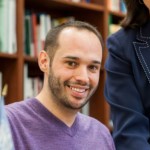 An interest in the Basque region first came to Thomas while pursuing an undergraduate degree in history from West Texas A&M University. While at university, he concentrated on Spain and the Spanish Southwest and wrote a paper comparing the treatment of suspected Basque witches in Spain and France. Personal genealogical research has further given Thomas an appreciation of the Basque people and their culture.
An interest in the Basque region first came to Thomas while pursuing an undergraduate degree in history from West Texas A&M University. While at university, he concentrated on Spain and the Spanish Southwest and wrote a paper comparing the treatment of suspected Basque witches in Spain and France. Personal genealogical research has further given Thomas an appreciation of the Basque people and their culture.
While at the School of Diplomacy and International Relations, Thomas’ concentrations are Global Negotiation and Conflict, and Global Health and Security. It was during a class on conflict that he approached Dr. Manojlovic on his desire to study the Basque Conflict further. This is when he first became aware of Dean Bartoli and Dr. Manojlovic’s work on the Basque Conflict.
Thomas has been a research assistant for Dr. Manojlovic since January 2014. In his spare time and for the Basque Research Team, he enjoys researching the Basque conflict, particularly on topics related to memory and culture. For his final Master’s Project, Thomas is compared secularization in the Basque Country and Catalonia. Thomas is currently an Administrative Aide at the Graduate School of Arts and Science at New York University.
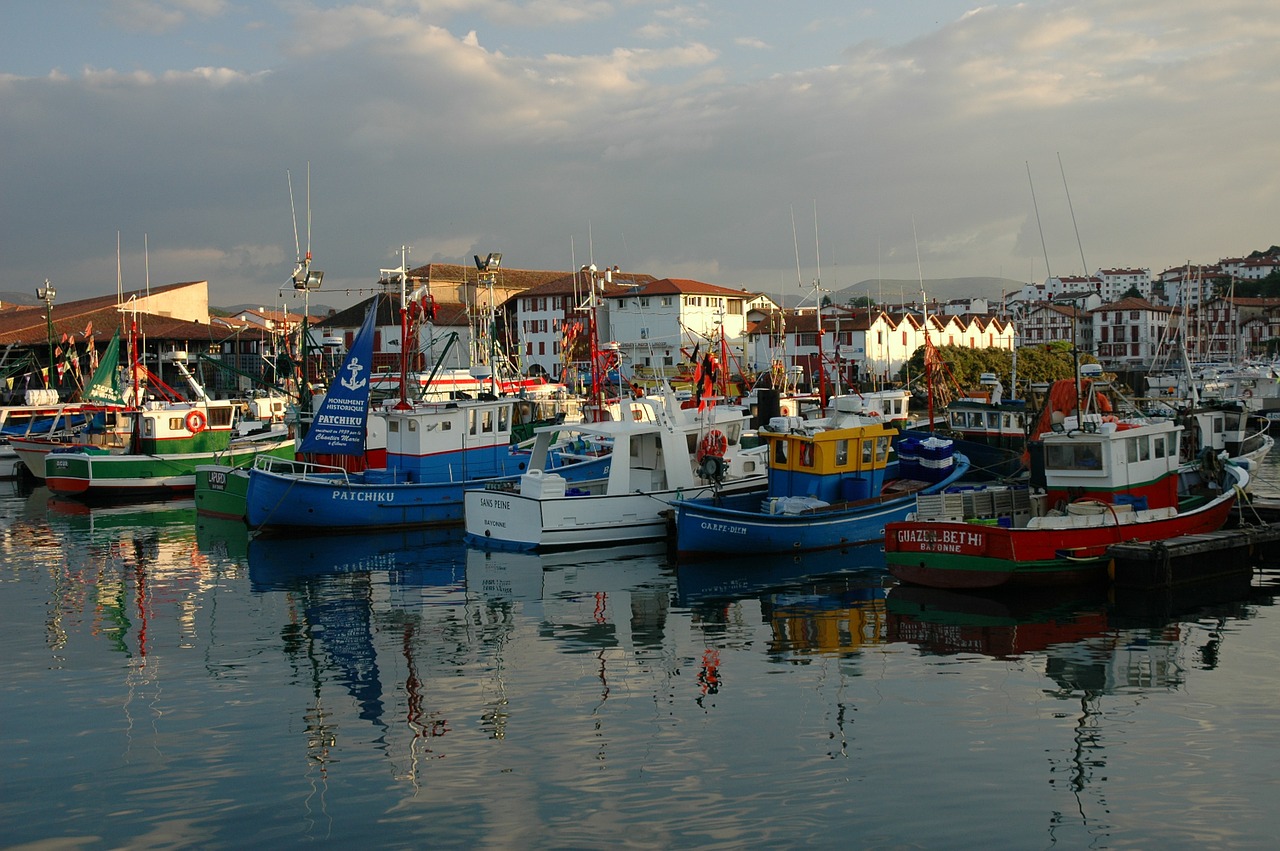
by Borislava Manojlovic | Feb 24, 2015 | About |
The Basque Country Research
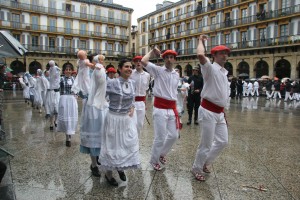 The investment in the Basque region started with Elkarri (http://www.elkarri.org/en/), an established NGO dedicated to the peace process in the Basque country, that began conversation with Senator George Mitchell and his possible involvement in the peace process. Senator George Mitchell was, at that time, senior research scholar at the Center for International Conflict Resolution established by Andrea Bartoli at Columbia University. Elkarri representatives visited the Center and Senator Mitchell suggested exploring different opportunities and collaboration with Gorka Espiau and Jonan Fernandez. This was an important step, which resulted in an ongoing collaboration based on the following principles:
The investment in the Basque region started with Elkarri (http://www.elkarri.org/en/), an established NGO dedicated to the peace process in the Basque country, that began conversation with Senator George Mitchell and his possible involvement in the peace process. Senator George Mitchell was, at that time, senior research scholar at the Center for International Conflict Resolution established by Andrea Bartoli at Columbia University. Elkarri representatives visited the Center and Senator Mitchell suggested exploring different opportunities and collaboration with Gorka Espiau and Jonan Fernandez. This was an important step, which resulted in an ongoing collaboration based on the following principles:
- Respect for actual local experiences
- Need for assessments and evaluations of the previous work in the Basque country which enables the team to learn and build on what was done before
- Emphasis on conversations about local conditions and the interplay between local and global as well as exploration of innovative strategies and research
- Long term commitment that comes from appreciation of the Basque country and its people and the need to look at specific current and past issues
 The collaboration started at the Center for International Conflict Resolution at Columbia University, but expanded quickly to include Peter Coleman, who is the Director of the International Center on Conflict and Cooperation at Teacher’s College and AC4. This collaboration grew further when Andrea Bartoli became the Dean of School for Conflict Analysis and Resolution and included George Mason University (GMU) into the collaborative space. This led to the signing of an agreement by GMU, Columbia University and the University of the Basque Country that established the Agirre Center. The name comes from Jose Antonio Agirre, who was the first Lehendakari and who taught at Columbia University after being exiled by Franco’s regime.
The collaboration started at the Center for International Conflict Resolution at Columbia University, but expanded quickly to include Peter Coleman, who is the Director of the International Center on Conflict and Cooperation at Teacher’s College and AC4. This collaboration grew further when Andrea Bartoli became the Dean of School for Conflict Analysis and Resolution and included George Mason University (GMU) into the collaborative space. This led to the signing of an agreement by GMU, Columbia University and the University of the Basque Country that established the Agirre Center. The name comes from Jose Antonio Agirre, who was the first Lehendakari and who taught at Columbia University after being exiled by Franco’s regime.
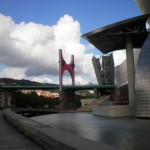 The research team at Seton Hall is the latest expression of this long term investment to learn about the Basque case. The key features of the research team are its interdisciplinarity and emphasis on young professionals-senior scholars collaboration. The team explores different areas and sectors to create a collaborative and an environment in which learning can be shared and made public. The team works as a support structure that is respectful of individual preferences in terms of disciplinary focus, individual interests and methodologies, but it is part of the larger project of learning from experiences and in particular learning from the peace processes and dealing with the past.
The research team at Seton Hall is the latest expression of this long term investment to learn about the Basque case. The key features of the research team are its interdisciplinarity and emphasis on young professionals-senior scholars collaboration. The team explores different areas and sectors to create a collaborative and an environment in which learning can be shared and made public. The team works as a support structure that is respectful of individual preferences in terms of disciplinary focus, individual interests and methodologies, but it is part of the larger project of learning from experiences and in particular learning from the peace processes and dealing with the past.
by Borislava Manojlovic | Feb 24, 2015 | Research Team |

Ryan Triche is an African regional specialist focusing on governance, conflict mediation, human rights, and the responsibility to protect. He is currently undertaking graduate studies at Seton Hall University’s School of Diplomacy in New Jersey, where he is concentrating in post-conflict reconstruction and sustainability. He received his B.A. from the University of North Carolina at Chapel Hill in 2013.
 Borislava Manojlovic is the Director of Research Projects and an Adjunct Faculty at the School of Diplomacy and International Relations, Seton Hall University. She is leading the Basque research team at the School of Diplomacy. She also serves as the Secretary-Treasurer of the International Association of Genocide Scholars (IAGS) and she is a member of IAGS Executive Board. Before joining the School of Diplomacy and International Relations, she has been the Director of Research of the Genocide Prevention Program at the School for Conflict Analysis and Resolution, George Mason University. Prior to that, Borislava has been working with the United Nations and the Organization for Security and Cooperation in Europe in Croatia and Kosovo for more than seven years.
Borislava Manojlovic is the Director of Research Projects and an Adjunct Faculty at the School of Diplomacy and International Relations, Seton Hall University. She is leading the Basque research team at the School of Diplomacy. She also serves as the Secretary-Treasurer of the International Association of Genocide Scholars (IAGS) and she is a member of IAGS Executive Board. Before joining the School of Diplomacy and International Relations, she has been the Director of Research of the Genocide Prevention Program at the School for Conflict Analysis and Resolution, George Mason University. Prior to that, Borislava has been working with the United Nations and the Organization for Security and Cooperation in Europe in Croatia and Kosovo for more than seven years.